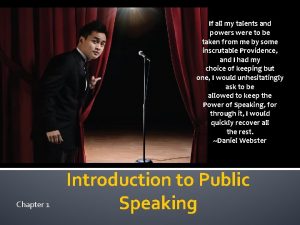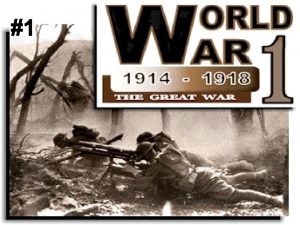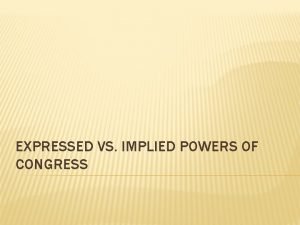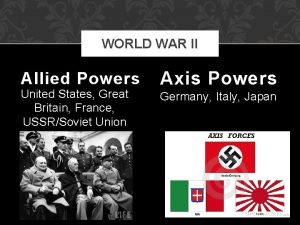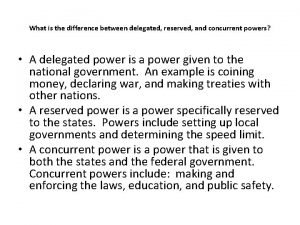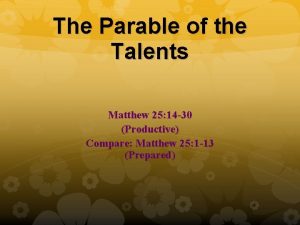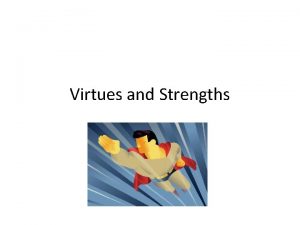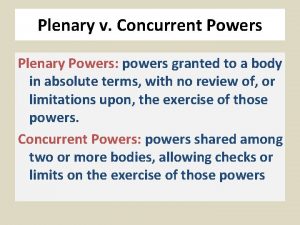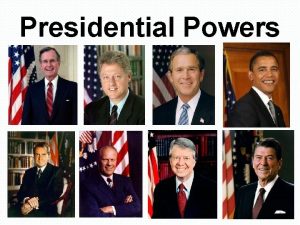If all my talents and powers were to










- Slides: 10

If all my talents and powers were to be taken from me by some inscrutable Providence, and I had my choice of keeping but one, I would unhesitatingly ask to be allowed to keep the Power of Speaking, for through it, I would quickly recover all the rest. ~Daniel Webster Chapter 1 Introduction to Public Speaking

Intro to Public Speaking �Why Study Public Speaking? ▪ What are some benefits to studying this skill? The ability to speak publicly offers… Empowerment – ▪ Having the resources, information and attitude to achieve a desired goal ▪ Results from ability to speak with confidence and competence

Intro to Public Speaking �Why Study Public Speaking? Improve Employability ▪ Ability to communicate effectively is key to success in any line of work ▪ Good communication skills are one of the most sought by employers ▪ It is a top rated skill based on employer surveys

Intro to public speaking �Rich heritage of public speaking Rhetoric – ▪ The use of words & symbols to achieve a goal ▪ Golden age of this was 4 th century BC in Greece ▪ Aristotle formulate ideas still used today US Also has a rich history Declamation – ▪ The delivery of an already famous address ▪ Practiced by 19 th century speakers

Intro to public speaking �Rich heritage of public speaking Elocution ▪ The expression of emotion through ▪ ▪ ▪ Posture Movement Gestures Facial expression Voice

Intro to public speaking �The Communication Process Communication as action ▪ Receiver – Individuals or audience message is being sent to ▪ Noise – Anything that interferes with message being sent ▪ External – Lawn mower, leaf blower, etc ▪ Internal – Physiological or Psychological What might be an example of internal noise

Intro to public speaking �Communication as Interaction Feedback ▪ Messages sent back to the sender from the receiver ▪ What are some examples of feedback? ▪ Are there any benefits for the speaker? Context ▪ The environment or situation in which the speech occurs ▪ Time ▪ Location ▪ Attitudes of audience

Intro to public speaking �The Communication Process Communication as action ▪ Source – Where the information is coming from ▪ Message – The information being transmitted ▪ Channel – The method being used to send the message ▪ Visual & Auditory in speech ▪ What other types of channels exist to send messages

Intro to public speaking �Communication as transaction (Current communication model) Identifies communication as a simultaneous process ▪ Roles are constantly changing We send & Receive messages concurrently ▪ Speaker sending verbal messages ▪ – listening to nonverbals ▪ Listener sending non-verbal messages ▪ – listening to verbals

Intro to Public Speaking �Public speaking as a communication process Public speaking is more planned Public speaking is more formal Roles of public speaker and audience is defined ▪ Speaker (sender) vs Listener (receiver)
 If all my talents and powers to be taken
If all my talents and powers to be taken Like a rose trampled on the ground
Like a rose trampled on the ground Above all powers above all kings
Above all powers above all kings List the allied powers and the central powers
List the allied powers and the central powers Expressed powers vs implied powers
Expressed powers vs implied powers Was the united states on the axis powers or allied powers?
Was the united states on the axis powers or allied powers? What's the difference between enumerated and implied powers
What's the difference between enumerated and implied powers Implied powe
Implied powe Difference between delegated reserved and concurrent powers
Difference between delegated reserved and concurrent powers Presidential powers informal or implied powers
Presidential powers informal or implied powers Parable of the talents moral lesson
Parable of the talents moral lesson
